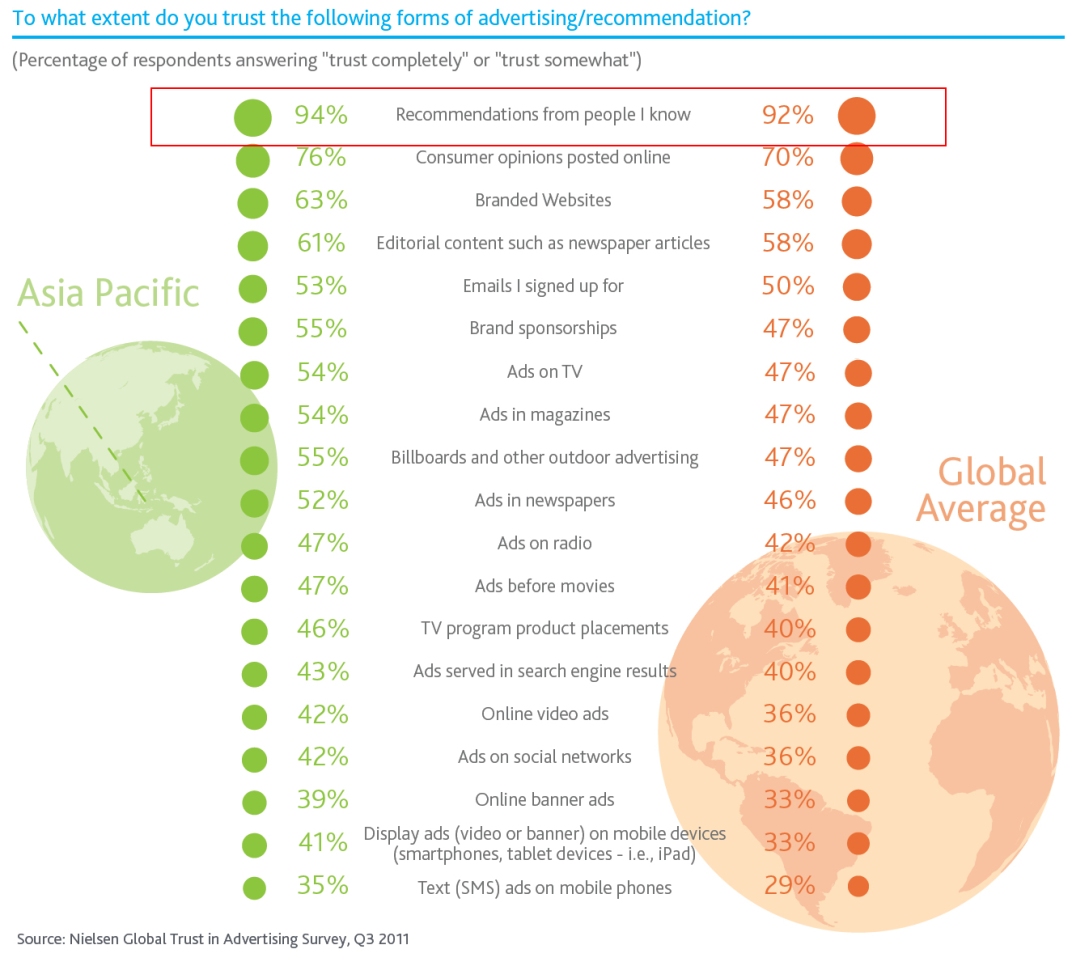Research indicates that people across Asia trust ‘earned’ forms of marketing and communications more than in other parts of the world, notably personal recommendations, online reviews and mainstream media articles.
Why?
- Culture. Asian societies continue to place a greater emphasis on respect for and loyalty to authority, specifically family elders and members, governmental and business leaders. This is evident in the Chinese approach to professional networking and the reluctance of the Japanese to criticise or insult institutions offline or online. Such respect for authority may also explain the high levels of trust placed by Asians in ‘owned’ media sources such as brand websites and sponsorships.
- Media control. Governments across the region control newspapers and broadcasters to a greater extent than in the west, the result being that citizens and consumers turn to social media to circumnavigate the censors and express their experiences and views in a (mostly) unregulated environment.
- Economics. While the middle-class is exploding across Asia, awareness and familiarity of brands still remains low. With many consumers still first-time buyers of bigger ticket products, they will tend to turn to people they know and trust – family members and work colleagues – for advice and recommendations, typically face-to-face.
- Location. ‘Asia’ remains predominately rural, resulting in strong local offline and online ties and relationships. People continue to meet face-to-face, reinforcing such ties, which can then extended online as Internet and smartphone adoption extends to rural communities.
Nonetheless, as the Internet, social media, evolving consumer and human rights legislation and urbanisation fuel demands for greater transparency and accountability (eg. China, Vietnam, Indonesia) it will be interesting to see to what extent Asians’ trust in word of mouth continues to flourish going forward.
___________________________
About the Author
This article was produced by Charlie Pownall, a consultant, trainer and trouble-shooter who works with companies, organisations and individuals to understand, protect, manage and defend their reputations. Charlie Pownall has an interesting blog that with insights on communication, reputation and online reputation. See more.





























